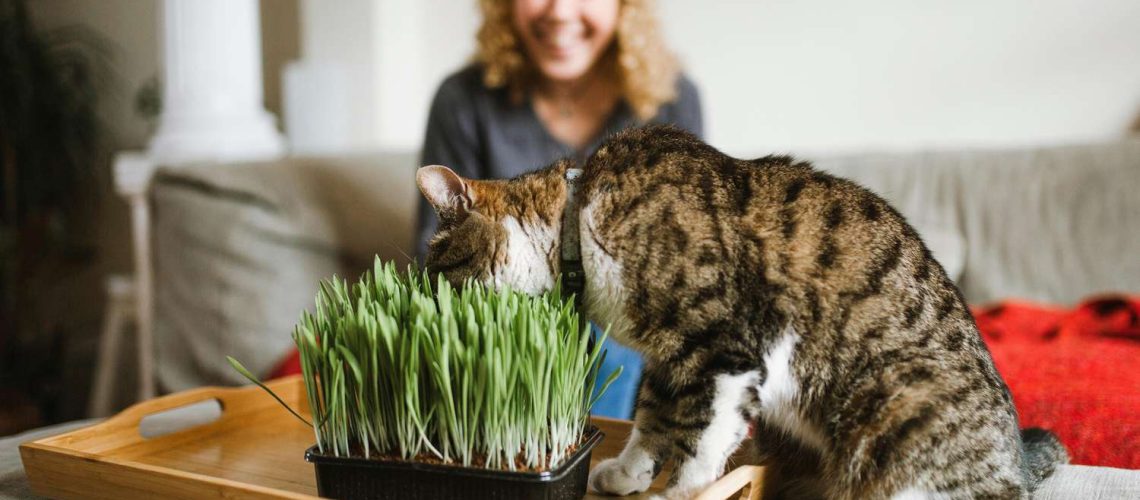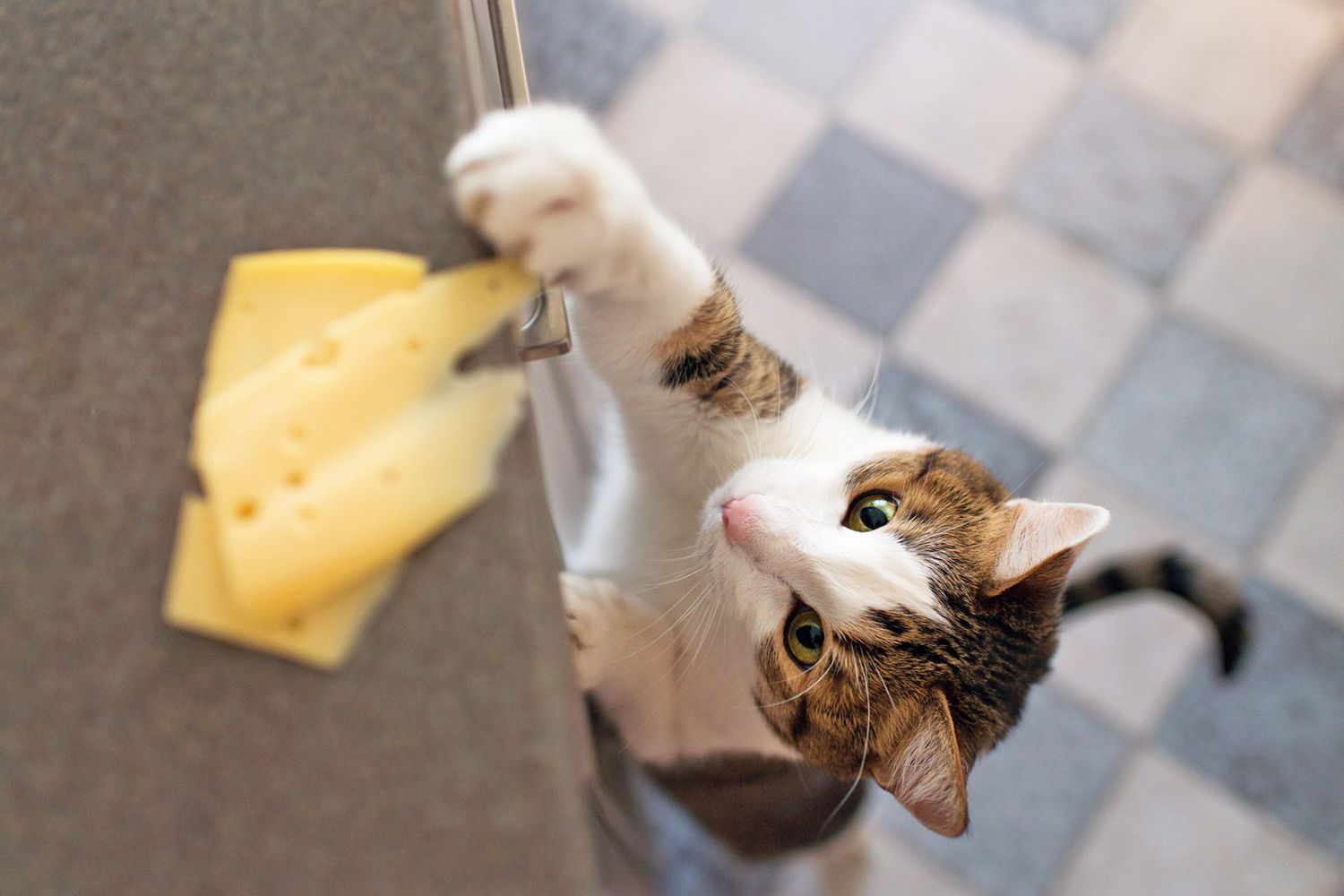Are you curious about why cats have a strange obsession with munching on grass? Well, get ready to uncover the fascinating world of grass gourmets! Exploring this subject will not only satisfy your curiosity but also provide valuable insights into the mysterious behaviors of our feline friends. Understanding why cats love to eat grass is essential for any cat owner or enthusiast, as it can help ensure their pets' well-being. So, let's dive into this captivating topic and discover the untold secrets behind your furry companion's green cravings. Get ready to be amazed by the intriguing world of grass gourmets!
Key Takeaways:
- Cats are instinctively drawn to eating grass due to their natural carnivorous diet and the need for certain nutrients.
- Grass consumption helps cats in promoting digestion by aiding in the elimination of hairballs and improving bowel movements.
- Eating grass can act as a natural laxative for cats, helping them expel any undigested matter from their stomachs.
- Cats may also eat grass as a form of self-medication to alleviate discomfort or irritation in their digestive system.
- While consuming small amounts of grass is generally safe for cats, it is important to ensure that they have access to pesticide-free options and monitor their behavior for any signs of excessive ingestion or distress.
Why do cats like eating grass?
Many cats enjoy nibbling on grass, and there are a few reasons why they do this. One reason is that grass contains certain nutrients that can be beneficial for cats. For example, grass is a good source of fiber, which helps with digestion. It also contains vitamins and minerals that can support a cat's overall health.
Another reason why cats like eating grass is that it can help them satisfy their natural instincts. Cats are carnivores, which means they primarily eat meat. However, in the wild, they would also consume small amounts of plant material by hunting prey that has already eaten plants or by directly consuming plants themselves. Eating grass may be a way for domesticated cats to fulfill this instinctual behavior.
Nutritional Benefits of Grass for Cats
Grass provides several nutritional benefits for cats:
- Fiber: Grass is rich in fiber, which aids in digestion and can prevent constipation.
- Vitamins and Minerals: Grass contains essential vitamins and minerals that contribute to a cat's overall health and well-being.
- Aids Hairball Elimination: The rough texture of grass can help dislodge hairballs from a cat's digestive system.
Fulfilling Instinctual Behavior
Cats have an innate instinct to hunt and consume prey. While domesticated cats may not have the opportunity to hunt live prey, their desire to engage in this behavior remains strong. Eating grass can provide a similar experience by allowing them to "hunt" the blades of grass and simulate their natural instincts.
How does eating grass help cats' digestion?
Eating grass can have a positive impact on a cat's digestion. Cats are obligate carnivores, which means their bodies are designed to primarily digest and absorb nutrients from meat. However, they also need certain plant materials for optimal digestion.
Grass acts as a natural source of fiber for cats. Fiber is essential for maintaining healthy bowel movements and preventing constipation. When cats eat grass, the indigestible fibers in the grass help add bulk to their stool, making it easier to pass through the digestive tract.
In addition to fiber, grass contains enzymes that can aid in digestion. These enzymes help break down food more efficiently, allowing cats to extract more nutrients from their diet.
Are there any risks or dangers when cats eat grass?
While eating grass is generally safe for cats, there are a few potential risks and dangers associated with this behavior:
- Pesticides or Toxic Substances: If the grass has been treated with pesticides or other toxic substances, it can be harmful to cats if ingested.
- Gastrointestinal Irritation: Some cats may experience mild gastrointestinal upset after eating grass, such as vomiting or diarrhea. This is usually temporary and not a cause for concern unless it becomes chronic.
- Ingestion of Foreign Objects: Cats may accidentally ingest small objects along with the grass, such as string or plastic. These objects can cause blockages in the digestive system and require medical intervention.
Tips for Safe Grass Consumption
To minimize any potential risks when your cat eats grass:
- Provide Organic Grass: Choose organic or pesticide-free grass to ensure that your cat isn't exposed to harmful chemicals.
- Supervise Outdoor Grazing: If your cat has access to outdoor grass, keep an eye on them to prevent ingestion of foreign objects or potentially toxic plants.
- Indoor Alternatives: If you have an indoor cat, consider providing safe alternatives for grass consumption, such as growing cat-friendly indoor plants like wheatgrass or offering commercially available cat grass.
Can eating grass help cats with hairballs? How?
Eating grass can indeed help cats with hairballs. Hairballs occur when cats groom themselves and ingest loose hairs. These hairs can accumulate in the digestive system and form clumps that are difficult to pass naturally.
The rough texture of grass can act as a natural "brush" inside a cat's stomach and intestines. When a cat eats grass, it stimulates the digestive system and helps move any accumulated hair through the gastrointestinal tract. This can prevent the formation of large hairballs and aid in their elimination through vomiting or normal bowel movements.
What are some signs that show a cat wants to eat grass?
Cats may exhibit certain behaviors or signs that indicate they want to eat grass:
- Excessive Chewing: If you notice your cat chewing on household plants or other non-edible items, it could be a sign that they are seeking out plant material like grass.
- Vocalization: Some cats may meow or make specific sounds to get your attention and express their desire for grass.
- Pawing at Grass: Cats may paw at patches of grass or try to reach it if they have access to outdoor areas.
Should indoor cats have alternative options if they can't get natural grass?
Indoor cats that don't have access to natural grass can benefit from alternative options. While grass is the preferred choice for many cats, there are other safe and suitable alternatives that can provide similar benefits:
- Cat Grass: Cat grass is a type of grass specifically grown for cats. It is available in pet stores and online, and it provides the same nutritional benefits as regular grass.
- Wheatgrass: Wheatgrass is another option that can be grown indoors. Cats enjoy chewing on wheatgrass, and it contains essential nutrients that support their health.
- Indoor Plants: Some indoor plants, such as spider plants or catnip, are safe for cats to nibble on. However, it's important to research which plants are non-toxic for cats before introducing them into your home.
How can cat owners provide safe access to grass for their pets to graze on?
Cat owners can ensure their pets have safe access to grass by following these tips:
- Grow Your Own Grass: Planting cat-friendly grass in pots or trays indoors allows your cat to graze safely without exposure to pesticides or toxic substances.
- Create an Outdoor Enclosure: If you have outdoor space, consider creating a secure enclosure where your cat can roam freely and safely eat the grass.
- Pet-Safe Lawn Treatments: If you treat your lawn with fertilizers or pesticides, make sure they are pet-safe products that won't harm your cat if they ingest the grass.
By providing safe access to grass, whether through indoor alternatives or supervised outdoor grazing, cat owners can support their cats' natural instincts and contribute to their overall well-being.
In conclusion, cats love to eat grass because it helps them with digestion and provides essential nutrients. While it may seem strange to us, eating grass is a natural behavior for cats and can be beneficial for their overall health.
Why is my cat obsessed with eating grass?
Cats may eat grass to increase their vitamin levels and benefit from the folic acid content, which aids in the transport of oxygen in their bloodstream. Some experts suggest that grass consumption may also provide relief for sore throats, while others propose that cats do it simply because they find the taste and texture enjoyable.
Is it OK for my cat to eat grass?
You might be surprised to know that when cats consume grass, it can provide various health benefits for them, such as relieving constipation and serving as a natural stress reliever.
What are cats lacking when they eat grass?
There are many strange and mysterious behaviors exhibited by cats, including their tendency to eat grass. Veterinary experts suggest that the most likely reasons for this behavior are to help with the removal of hairballs or to address a vitamin deficiency, specifically folic acid.
How do I stop my cat from eating grass?
Keep in mind that hairballs can contribute to digestive problems in cats, leading them to eat grass. By minimizing hairballs, you can eliminate the need for grass consumption. The most effective approach is to regularly groom your cat.
Can cats get worms from eating grass?
Kittens can get roundworms from their mother while she is nursing them, and adult cats often get tapeworms. Worms can be transmitted through contact with infected individuals, as well as through the ingestion of contaminated feces, grass, parasites, and raw meat.
Do cats eat grass because they are hungry?
According to Animal Planet, it is believed that cats eat grass because it helps them get rid of things that they can't digest, such as fur, and also helps with constipation. Grass and plants can also help reduce stress for cats, according to Vetstreet.

















